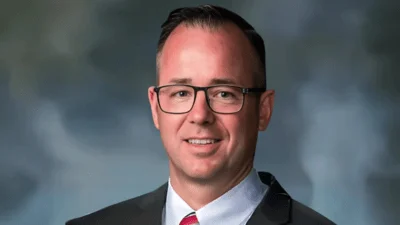Illinois State Rep. Brad Halbrook (R-Shelbyville) | rephalbrook.com
Illinois State Rep. Brad Halbrook (R-Shelbyville) | rephalbrook.com
Illinois State Rep. Brad Halbrook (R-Shelbyville) recently reacted to reports showing that relying on renewables to replace traditional forms of energy is leading to blackouts.
In a May 24 Facebook post, Halbrook shared a link to a May 24 piece from The Federalist, which focused on a report from the North American Electric Reliability Corporation (NERC). That report, an annual summer assessment from June through September, predicted that the entire Western U.S., the midwest, Texas and the western south could be affected by repeated blackouts.
"No kidding. We told you so," Halbrook wrote in his Facebook post.
“Make no mistake, this is all a man-made energy crisis on the part of leaders who worship at the altar of the green agenda while plunging our country into the dark ages,” Larry Behrens the communications director for the energy non-profit Power the Future told The Federalist.
In February, the Solar Energy Industries Association reported that five months after Illinois legislators passed and Gov. J.B. Pritzker signed "landmark clean energy legislation," they found that "2022 is on track to be one of the biggest years for solar energy in Illinois’ history. The renewable energy industry plans to complete more than 8,400 additional solar installations and increase its workforce by nearly 50% in 2022."
Last October, The Chicago Tribune reported that Illinois had fallen short of previous targets for renewable energy. Under the last major overhaul of state energy policy, signed into law five years ago by then-Republican Gov. Bruce Rauner, Illinois was supposed to get 25% of its energy from renewable sources by 2025. That deadline, which is no longer in effect under the new law, is still four years away, but it is widely acknowledged that the state was not on track to meet it and has been behind the curve since the start.





 Alerts Sign-up
Alerts Sign-up